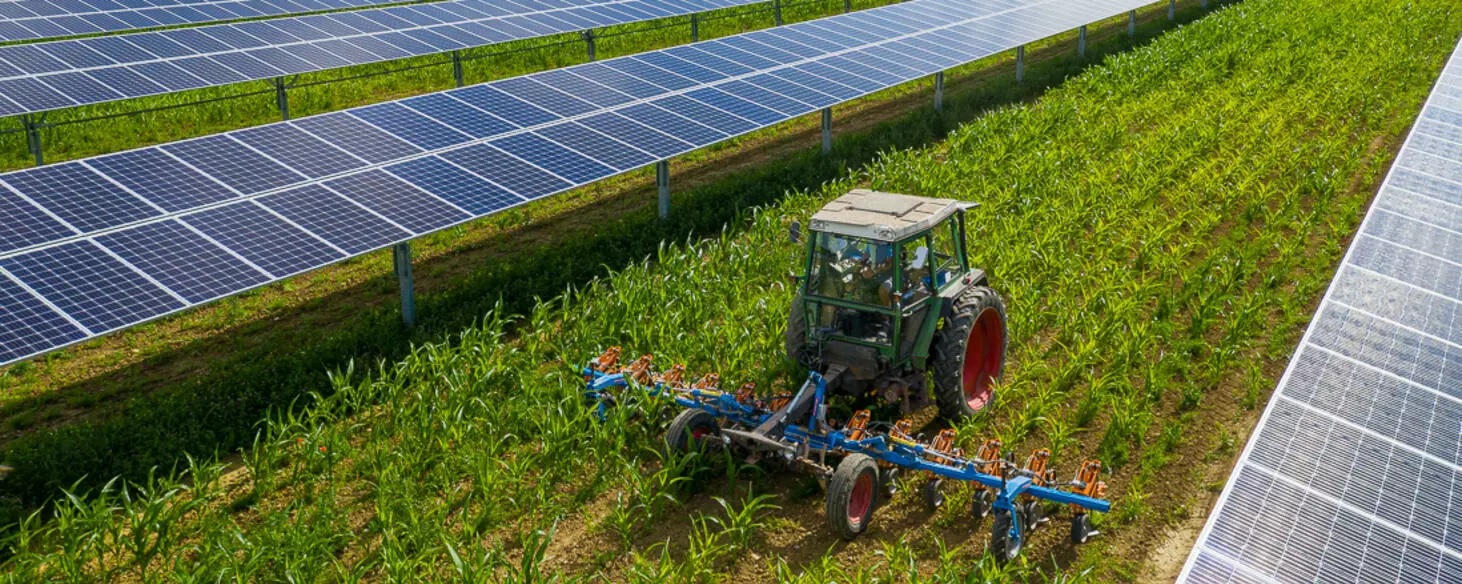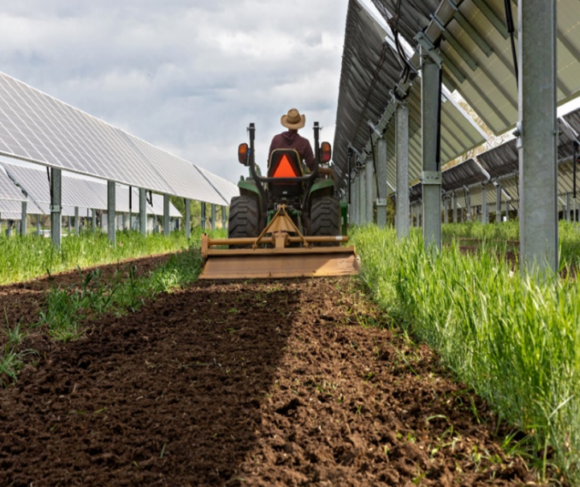
Photo credit: agrarheute.com
The New Jersey Board of Public Utilities (NJBPU) and the Rutgers Agrivoltaics Program (RAP) have entered an agreement to develop and implement a Dual-Use Solar Energy Pilot Program.
The pilot program, which was announced on May 1 and will last for three years, is designed to demonstrate and study the compatibility of agricultural or horticultural production with solar photovoltaic infrastructure on the same land (called agrivoltaics or dual-use solar).
 RAP, a multidisciplinary team of 15 Rutgers personnel, faculty and Rutgers Cooperative Extension agents, is investigating this emerging agrivoltaics technology, which has the potential to keep farmland productive and produce clean energy.
RAP, a multidisciplinary team of 15 Rutgers personnel, faculty and Rutgers Cooperative Extension agents, is investigating this emerging agrivoltaics technology, which has the potential to keep farmland productive and produce clean energy.
Margaret Brennan-Tonetta, senior associate director of Rutgers New Jersey Agricultural Experiment Station (NJAES) and director of the Office of Resource and Economic Development, said, “Rutgers New Jersey Agricultural Experiment Station has made a large commitment to investigate the opportunities for dual-use Solar by installing agrivoltaic R&D systems at three of our research farms. By working closely with NJBPU and the New Jersey Department of Agriculture, I am confident that we can utilize this new technology to not only generate clean energy, but also improve farm viability and sustainability.”

Photo credit: jackssolargarden.com
RAP is investigating the scientific merit of this emerging technology to be installed at the Rutgers Animal Farm in New Brunswick, Rutgers Agricultural Research and Extension Center in Bridgeton, and the Clifford E. & Melda C. Snyder Research and Extension Farm in Pittstown.
The team will provide public research and technical assistance through the Rutgers EcoComplex “Clean Energy Innovation Center,” Rutgers School of Environmental and Biological Sciences, Rutgers Cooperative Extension and other applicable schools and units within the university.
New Jersey’s Dual-Use Solar Energy Pilot Program will allow for the installation and operation of up to 200 Megawatts of direct current (MWdc) of solar electric capacity over three years, extendable by NJBPU to up to 300 MWdc over five years. Individual solar projects would be limited to 10 MWdc. The pilot program and the results from its associated research requirements will inform a permanent program that includes standards for construction and operation of dual-use solar energy projects.
The pilot program will provide incentives to solar electric generation facilities, located on unpreserved farmland, which plan to maintain the land’s active agricultural or horticultural use.
Agrivoltaics can provide farmers with an additional stream of revenue, assisting with farm financial viability by enabling continued agricultural or horticultural production of land while also increasing the statewide production of clean energy.

